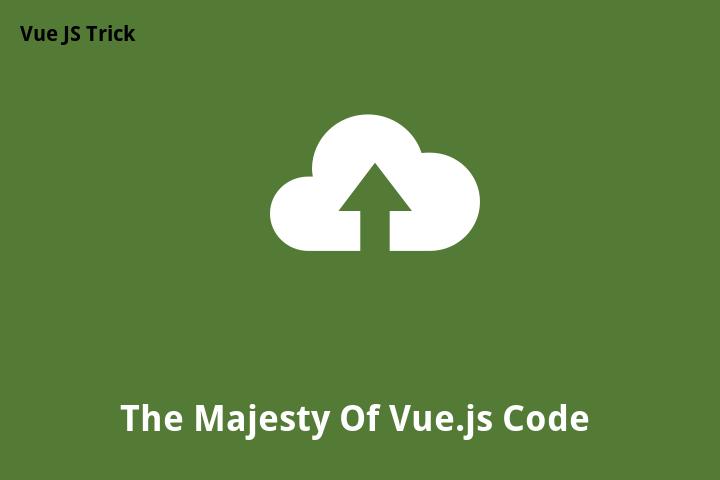The Majesty Of Vue.js Code
Introduction
Vue.js is a progressive front-end framework that is gaining immense popularity among developers, especially those who want to build complex user interfaces. This open-source framework was created by Evan You in February 2014 and has since then grown in usage and community support. This article will explore the majesty of Vue.js code, how it works, and why it has become the go-to tool for developers.
What is Vue.js?
Vue.js is a JavaScript library that allows developers to build interactive, dynamic user interfaces on the web. It is a progressive framework that focuses on the view layer and can be easily integrated into other projects or used as a stand-alone tool. Vue.js allows developers to create reactive components that can manage their own state and properties, making it easy to develop and maintain complex applications.
How Vue.js Works?
Vue.js operates on a simple and intuitive approach to building user interfaces. It works by creating a virtual DOM, which is a lightweight representation of the actual DOM. When a component’s state changes, Vue.js compares the old and new virtual DOMs and updates the actual DOM only where necessary. This approach makes Vue.js very fast and efficient, even when handling large and complex applications.
Why Vue.js is Popular?
Vue.js is rapidly becoming popular with web developers because it offers a unique combination of simplicity, flexibility, and scalability. Vue.js is easy to learn and use, yet powerful enough to handle complex applications. It is flexible in that it can be easily integrated with other tools and libraries, and its reactive components make it scalable and maintainable.
Features of Vue.js
Vue.js has many features that make it stand out among front-end frameworks. Some of these features are:
- Reactivity: Vue.js provides a reactive data binding mechanism that allows changes to a data object to be reflected immediately in the view.
- Component-Based: Vue.js is built around the concept of components, which allows for the creation of reusable and maintainable code.
- Lightweight: Vue.js is a lightweight framework and will not slow down the performance of an application.
- Template System: Vue.js provides a simple and intuitive template system that allows developers to create HTML templates with Vue.js-specific syntax.
- Event Handling: Vue.js provides event handling capabilities that allow developers to easily interact with their components.
Getting Started with Vue.js
Getting started with Vue.js is easy. The framework can be installed via CDN or via npm. Once installed, developers should create a new Vue instance that defines its data, methods, and templates. Here is an example of a Hello World application in Vue.js:
<!DOCTYPE html>
<html>
<head>
<title>Hello World</title>
<script src="https://cdn.jsdelivr.net/npm/vue"></script>
</head>
<body>
<div id="app">
{{ message }}
</div>
<script>
var app = new Vue({
el: '#app',
data: {
message: 'Hello World!'
}
})
</script>
</body>
</html>Conclusion
Vue.js is a powerful and efficient front-end framework that is rapidly gaining popularity among developers. This article has explored the majesty of Vue.js code, how it works, and why it has become the tool of choice among developers. Whether you are a beginner or an experienced developer, Vue.js is a framework that is worth learning and exploring.
FAQs
1. Is Vue.js difficult to learn?
Vue.js is a simple and intuitive framework that is easy to learn and use. Its documentation is comprehensive, and its vibrant community provides ample support and resources.
2. Can Vue.js be used with other front-end frameworks?
Yes, Vue.js can be easily integrated with other front-end frameworks such as Bootstrap and jQuery.
3. What is the difference between Vue.js and React?
React is a virtual DOM library, while Vue.js is a progressive framework that operates on a virtual DOM. Also, Vue.js has a simpler syntax and is more opinionated than React, which makes it easier to learn and use.
4. Is Vue.js suitable for large and complex applications?
Yes, Vue.js is suitable for large and complex applications. Its reactive components, lightweight nature, and scalability make it an ideal choice for such applications.
5. Is Vue.js suitable for small projects?
Yes, Vue.js is suitable for small projects. Its simplicity and ease of use make it an ideal choice for projects of any size.

